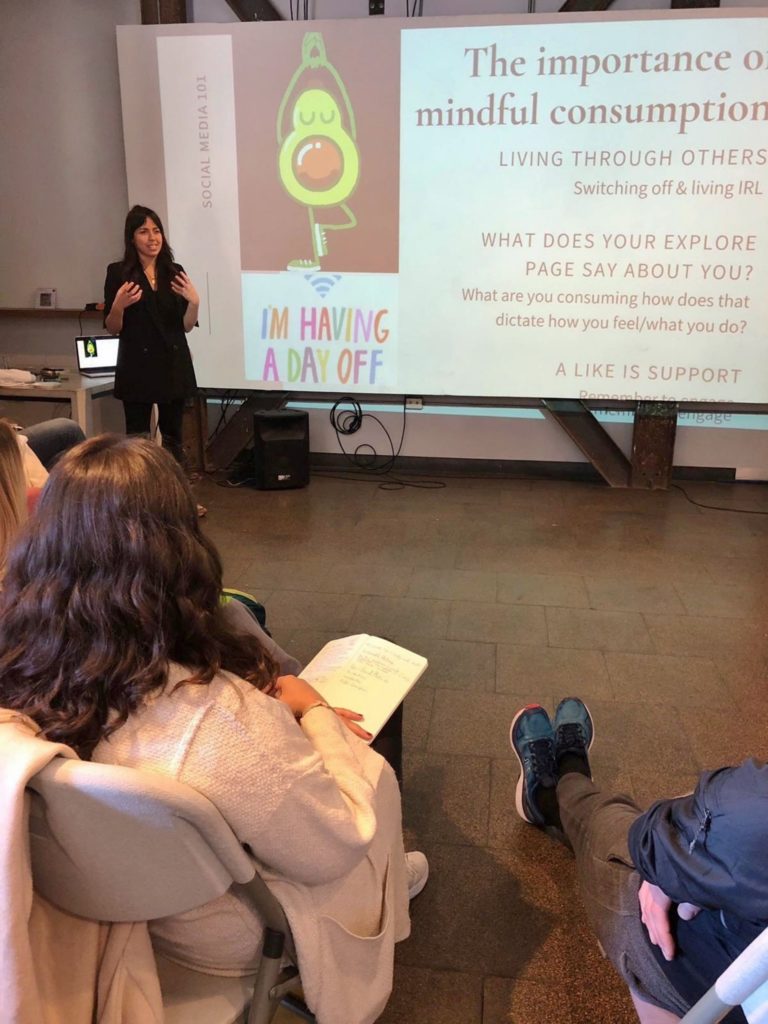Despite often being labelled as privileged, smashed avo on toast eating, lazy good for nothings, there needs to be an understanding that millennials (aka Gen Y) have grown up in a world unlike any other.
In amongst a multitude of issues, this generation has recorded some of the highest rates of mental health issues and has had to often very quickly adapt to vast changes in a very short period of time.
Podcast host and digital educator Demi Kotsoris has coined the term ‘Millennial Crisis’ to encompass the general gist of uncertainty and stress that many millennials are facing.
“I define it as a privileged problem that consciously or subconsciously affects our mental health or wellbeing…It’s this idea that our problems aren’t big because we compare them to someone else,” Ms Kotsoris explained to Neos Kosmos.
READ MORE: “Greeks. Romioi. Greek Australians” on display – Who are we now?
https://www.instagram.com/p/CD_FRSdgub8/?utm_source=ig_web_copy_link
Despite being in a great nine to five job that would tick most of the boxes of a great workplace, there was still something missing. Something just did not feel right.
The 26-year-old discovered this sense of “feeling lucky” to have a job that feels unfulfilling and being confused that nothing seems wrong with your life but something doesn’t feel right was not uncommon.
A passion to make others feel less isolated in their emotions and the drive to figure out what was causing all of this was the catalyst for The Millennial Crisis podcast.
“What The Millennial Crisis aims to do is through conversation and community is be able to educate and empower millennials to [sic] do what they really want and not follow the pathways that once were and to make them realise that their problems are relative to them and unless hey deal with them, we won’t be able to help others or ourselves to grow,” the host said.
Ms Kotsoris began the podcast in 2017, after having dealt with her own challenges of getting through her university degree and feeling apathetic for what the future held.
She found that opening up to others about her struggles helped not only herself, but encouraged others to share their own similar experiences. Experiences that others would be too afraid to share and would usually down play.
During her own research, Ms Kotsoris found that there were still differences even within the generation and as of this year, Gen Y-ers range from the ages of 24-40.
“The ones who are high up on the spectrum of things feel more stuck and I put that in the timeline where the internet disrupted our pathways and I refer to us as the ‘limbo generation’ because we were almost the tester generation of what the internet was going to do…I would say is that the ones on the lower end of the spectrum, more towards Gen Z are more open minded about it, but they still don’t know how to move forward… In saying that, no millennial is the same within age group,” Ms Kotsoris said.
READ MORE: Young Greeks tell us what they want as new era of NUGAS begins

Countless studies have shown the impacts that social media has had in shaping a generation that at one point lived without it.
“We are the generation with the most connection, but least community.”
Insecurity about looks, career and lifestyle has been prevalent for decades, however social media has the tendency to shove our perceived shortcomings in our faces 24/7.
This constant bombardment of information that we have at our fingertips at any time we want means many do not get the chance to disconnect and take a moment for themselves, but social media does not have to bee all doom and gloom.
“The way I tell people to combat that is to create a feed that works for you instead of against you. Follow accounts that are transparent, to make the algorithm work for you because that’s what’s causing so many mental health problems. The biggest thing I say to millennials are ‘comparison and perception’ and it’s across all genders,” Ms Kotsoris said.
Ms Kotsoris also noted the importance of having a varied feed that includes ideas and beliefs that fall outside of your own, to gain a greater perspective of the world around you.
“It’s really important to diversify that (social feed) in a way that’s not just opinions that you agree with. Some people can’t afford or are unable to go abroad to look at new cultures and some people are too afraid in the beginning to go into different communities and hear different perspectives. That’s the most important thing, even if you don’t agree, just see the other side and be open to it,” she said.
Social media aside, life outside of our little internet bubbles continues to be clouded self doubt, apathy and stress.
https://www.instagram.com/p/CFWrGwLgNUP/?utm_source=ig_web_copy_link
The Millennial Crisis also runs workshops and networking events for Gen Y and through this Ms Kotsoris has found the most common roadblock in the lives of millennials is… themselves.
“It’s really funny because as I did my research, I had my own assumptions of what was going to happen and then to have them stump me was quite strange. The biggest roadblock is ourselves and what I mean by that is our thoughts, our beliefs, the way we think things are supposed to go and the way we learnt.”
Despite wanting to maybe shake things up, millennials are often worried to take risks due to the climate they have grown up in.
“It’s not necessarily about learning more, it’s in fact unlearning a lot of the things that we did. Even though I didn’t have a traditional work place per se and have never worked in that way, I still feel as though I need to be at my desk from nine to five, because that’s what is taught to us. When I know that I might work best from eight ’til 12 and then chill for the day and then work from six ’til nine again,” Ms Kotsoris said.
Unlearning the ‘ways of life’ that were instilled by Baby Boomers and Generation X is not an easy road.
There is a slight battle getting older generations to understand the climate of the world, especially for many millennials that come from migrant families.

Working harder does not equate to ‘success’ like it used to and a degree does not always guarantee a job.
“Our parents generation, I wouldn’t say they settled, but they accepted the way things were and we’re no longer accepting it. Whether we’re pushing tiny boundaries like when I was younger in saying ‘dad, I’m going to do marketing, not finance’. I think that’s a really great trait that we have,” Ms Kotsoris said.
There was even an instance where mid-podcast, one of Ms Kotsoris’ guests who she described as a “Boss Lady”, had her own moment of clarity about the kinds of expectations she was forcing onto her own son.
“She was saying how her son wants to be a musician and in our conversation she had this revelation that she kept on pushing her son to go down a safer path and to have a back up. At the end of the conversation she said ‘I can’t believe I’m saying that to my son after I’ve just said my story and have just said that taking risks and doing my own thing was the best thing I could’ve done and here I am watching my son hustle.”
Millennials no longer want to stick to the status quo, they do not want to settle for a life that they do not find fulfilling.
Gen Y-ers burst with creativity and a drive to have a life that they can cultivate and wholeheartedly call their own, sometimes they just might need a little help from Ms Kotsoris and The Millennial Crisis to figure it out.
You can listen to Demi Kotsoris on The Millennial Crisis on Spotify and Apple Podcasts.
For more info visit www.themillennialcrisis.com